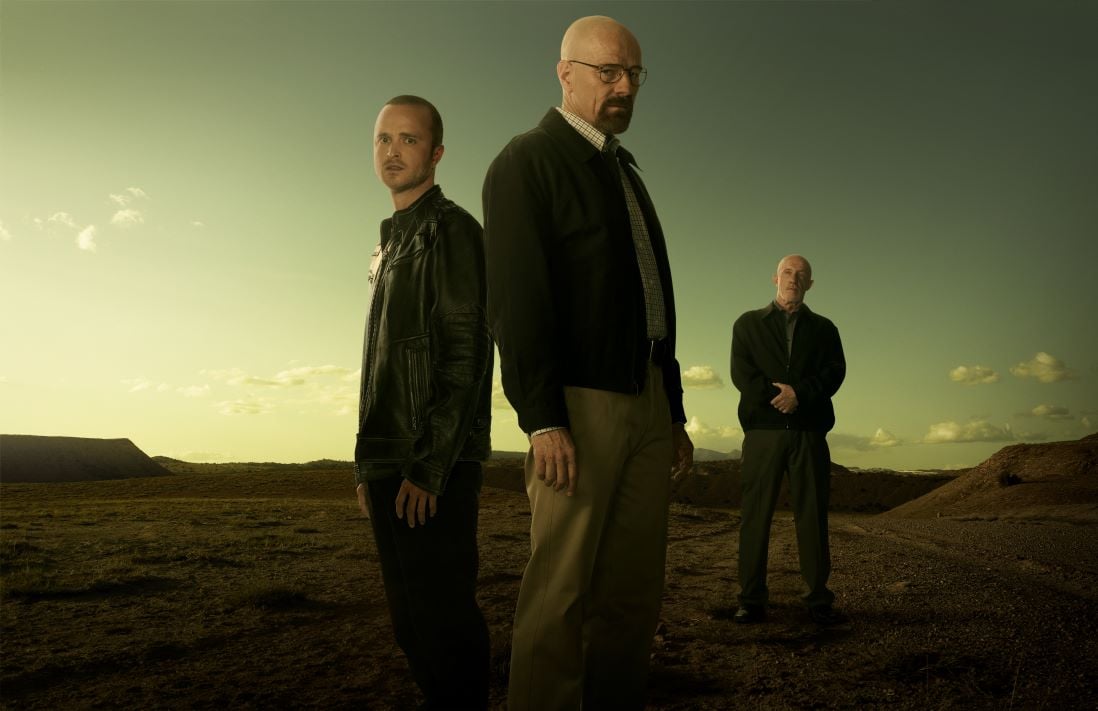‘Breaking Bad’ Changed Television Forever By Being Exceptional — Here’s How
So many television fans agree that Breaking Bad is one of the greatest, if not the greatest, television shows in existence. The story of Walter White slowly morphing from an average, suburban high school chemistry teacher into a drug kingpin is a fascinating study of human nature.
But besides the unique premise for Breaking Bad, what exactly about it made it so great — and how did it change television going forward? There are a few ways.

‘Breaking Bad’ told a complete story
So many shows begin with an idea but not a plan. That becomes evident as the series progresses and they gradually lose direction and, therefore, lose their audience. Meanwhile, Breaking Bad always had a specific story to tell from start to finish.
Showrunner Vince Gilligan explained that he intended to tell the “Story about a man who transforms himself from Mr. Chips into Scarface.” He succeeded, and in doing so, he raised the bar for other television creators.
“I knew Vince Gilligan was attempting to do something that has never been done on television before—to change a character completely from beginning to end,” actor Bryan Cranston told Esquire. “Television had always been about stasis, characters that you could rely on, that you know very well, and that are comforting in a major way, and he was attempting to upset the apple cart.”
The casting for ‘Breaking Bad’ was flawless
No matter how good the story, it all risks falling apart if the script is given to subpar actors. But the cast of Breaking Bad elevated the material to unforeseen heights and helped turn the series into the huge success it became.
Cranston, who played the lead character Walter White, earned four Emmys for his work on the show. There were also multiple nominations and wins for his co-stars.
The most impressive performances came from Aaron Paul (Jesse Pinkman), Anna Gunn (Skyler White), Dean Norris (Hank Schrader), RJ Mitte (Walt Jr.), Bob Odenkirk (Saul Goodman), Betsy Brandt (Marie Schrader), Giancarlo Esposito (Gus Fring), and Jonathan Banks (Mike Ehrmantraut).
The cinematography and musical scores elevated the story
Most fans don’t understand what makes a television show look or sound so good, but industry insiders know it all comes down to cinematography and music. Breaking Bad did an incredible job with cutting edge camera work and angles that made the show a visual masterpiece. These small details made everyday conversations seem more monumental, plus made the action scenes even more exciting.
The music also had a lot to do with Breaking Bad’s success. The musical score set the tone for every scene of the show, highlighting the mood perfectly.
‘Breaking Bad’ directors knew their fans were smart
The wisest move directors made on Breaking Bad was hiding Easter eggs and other visual clues and references throughout the series. From color symbolism to phrases and objects, writers and directors counted on their fans to pick up on clues and making predictions based on what they saw.
This helped hype the show plus made the fans fall in love with Breaking Bad even more.


